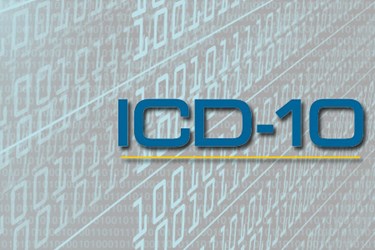ICD-10 Delay Intensifies Pressure On CMS

By Christine Kern, contributing writer

CMS must step up and clarify new deadlines, processes
The Senate’s passing of the House's Protecting Access to Medicare Act of 2014, without any debate or discussion about the new coding system, delays cuts in physicians' Medicare rates and also puts off implementation of ICD-10 until 2015 at the earliest. President Barack Obama signed the bill into law on April 1.
As Modern Healthcare reports this latest delay puts increased pressed on the CMS for clarification and answers as hospitals, physicians, insurance companies, and other healthcare providers grapple with how they should be moving forward. A number of issues still remain unclear in the wake of the latest round of legislative battles. The bill passed this week prohibits the CMS from enforcing any mandate to switch to the newer system until at least Oct. 1, 2015.
But the act leaves CMS with many questions to answer, including:
- Will Oct. 1, 2015, become the new deadline?
- Will the agency allow organizations that are ready to implement ICD-10 to do so voluntarily?
- Would the agency scrap ICD-10 altogether and instead wait for ICD-11, which is due to be released in 2017?
The decision to delay the implementation of ICD-10 stunned many healthcare providers and payers who have collectively spent hundreds of millions to meet the CMS' previous deadline of this fall for the changeover. Every inpatient medical procedure in the U.S. is paid for using these medical codes, and the industry had been told repeatedly that all of the codes would change effective this October. ICD-10 includes more than 68,000 potential codes for discrete medical conditions, up from the 13,000 such codes under the current system, ICD-9.
While this move is a blessing for many smaller healthcare providers, giving them more time to prepare for the transition, it is being greeted with frustration and anger by those who have already taken the necessary steps to make the switch in October. In the meantime, executives at hospitals and insurance companies are left to wonder whether they should continue so-called “dual-coding” efforts.
In light of these facts, some organizations that have spent large sums to accomplish a government goal – a mandate that was reiterated by CMS head Marilyn Tavenner last month – may be inclined to push for the ability to use ICD-10 codes voluntarily.
“It says what they can't require, but it doesn't say what they can and can't do to facilitate the work that has been done,” said Chris Powell, president of health IT consulting firm Precyse. “That's what everyone is waiting to hear. Some organizations will stop their ICD-10 efforts until they hear that.”
